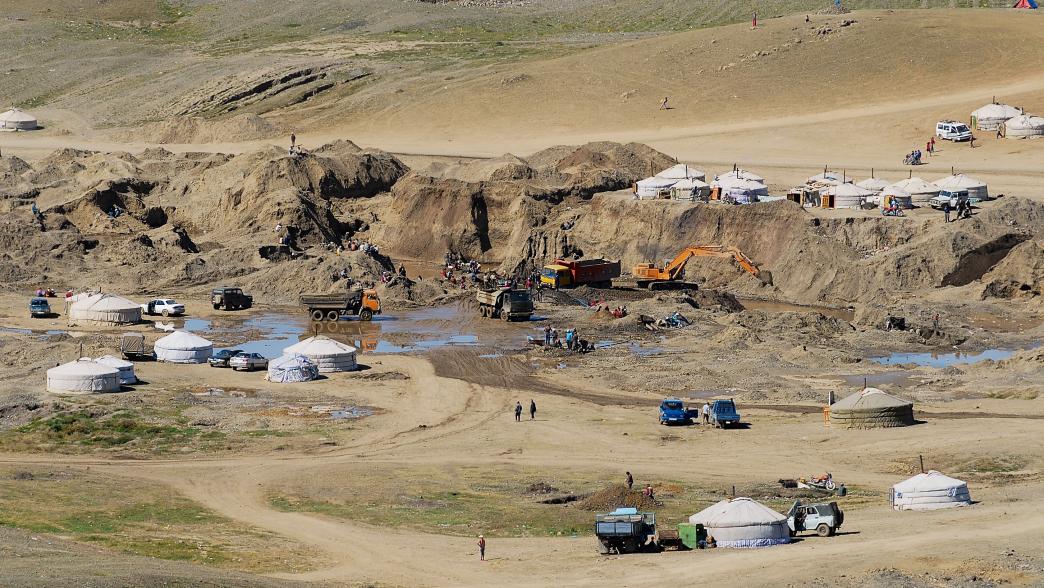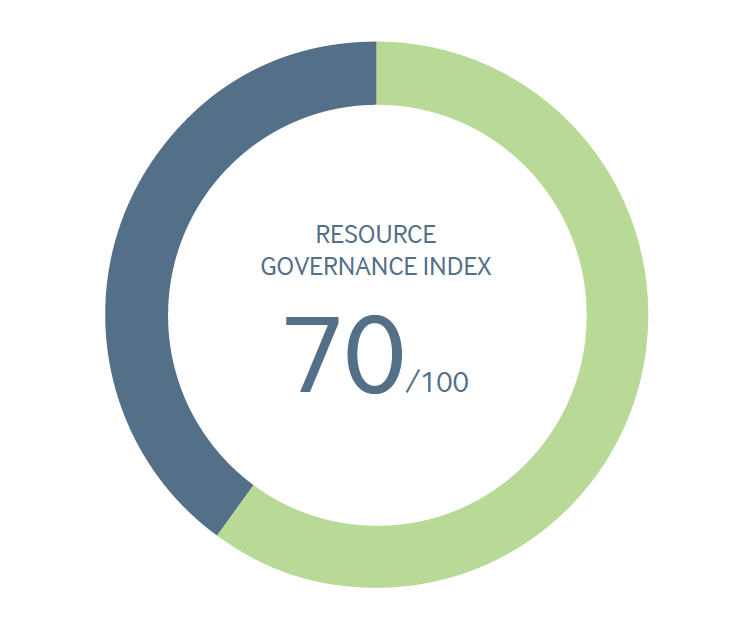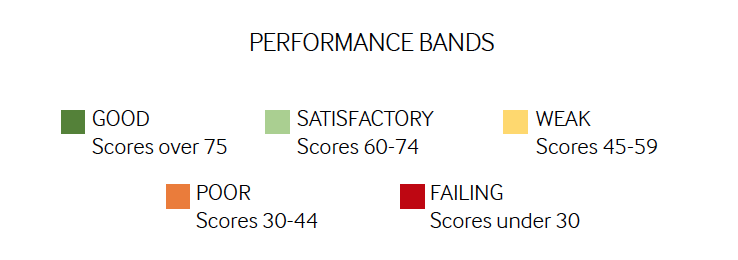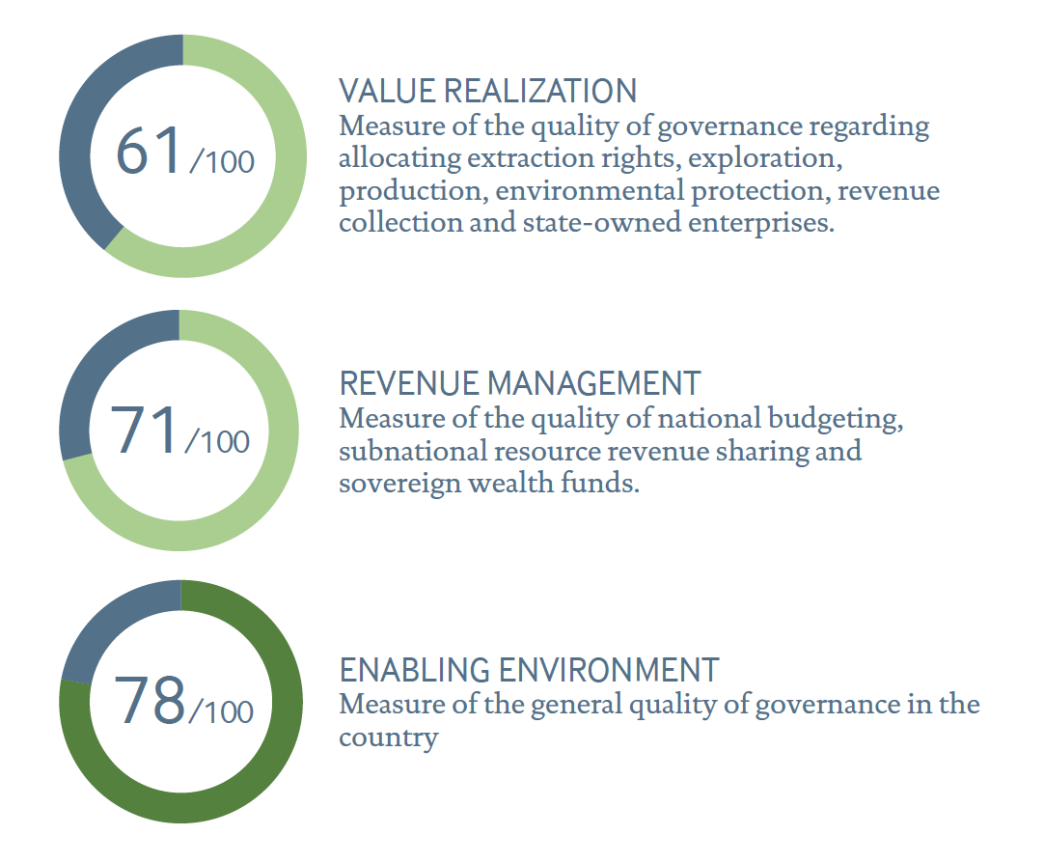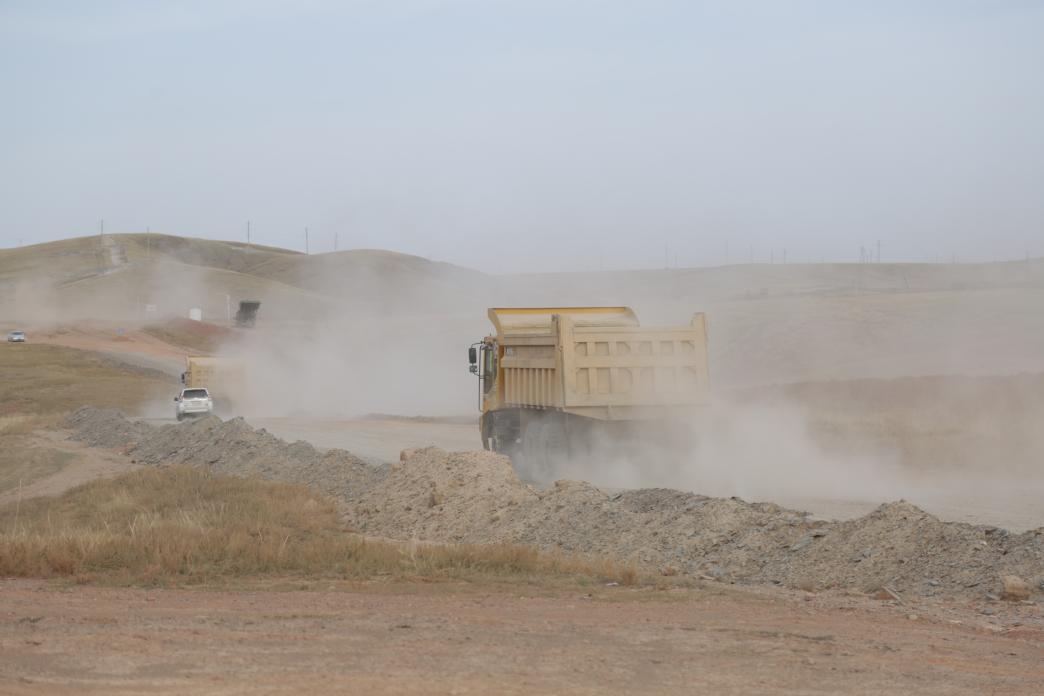
2021 Resource Governance Index: Mongolia (Mining)
Монгол »
Press release
Mongolia’s mining sector scored 70 out of 100 points in the 2021 Resource Governance Index (RGI), an increase of 6 points since the 2017 index. Both the value realization and revenue management components now place firmly within the “satisfactory” performance band, while improvements in the enabling environment push the component into the “good” performance band. Nonetheless, Mongolia can attain better resource governance by targeting some key focus areas.
- Governance of local impacts deteriorated by 14 points since the 2017 RGI, with backsliding in areas related to both the legal framework and disclosure of relevant information.
- Mongolia has granted relatively few exploration licenses since 2017, but issues remain in the laws and disclosures governing the post-licensing period. There are no legal requirements for publication of contracts or information about the beneficial owners of extractive companies.
- Mongolia’s high score in the index’s open data subcomponent, stemming from digitization improvements by the Mongolian government, masks an absence of key data and information disclosures in the mining sector.
- The mining sector in Mongolia is characterized by a gap between enacted laws and enforcement, especially in the governance of local impacts and subnational resource revenue sharing.
- State-owned enterprise (SOE) governance remains “poor,” which is worrying given the heavy financial reliance of the Mongolian government on multiple SOEs operating in the extractive sector.
Recommendations
To continue improvement in terms of resource governance, Natural Resource Governance Index encourages the following courses of action:
- Parliament and Government of Mongolia: Legislators must pass legislation to strengthen the legal framework governing contract and beneficial ownership disclosures. Legislators must ensure the implementation of the Law on Future Heritage Fund and Fiscal Stability Fund, establishing an investment body and ensuring investment in financial assets. Should the government revamp the fund into a new resource fund, as required by amendments to the Constitution of Mongolia, officials must pass a strong legal framework and ensure that transparent and accountable practices prevent the siphoning of resource revenues or financial mismanagement. Quick return to normal budgetary procedures and the implementation of fiscal rules is needed to ensure the prudent management of mining revenues.
- Ministry of Mining and Heavy Industry, and the Mineral Resources and Petroleum Authority of Mongolia: These bodies should adhere to open data principles and improve access to online data. Data on licenses, production and sales should be made available online in greater detail and in machine-readable formats. Where applicable, data should be published down to the individual mining project level and updated regularly.
- Erdenes Mongol: Executives must enhance disclosures and increase reporting. The company should update its website and produce and disclose annual and financial reports as per best practice. The company should also disclose additional information on production and sales data, the relationship of the company with subsidiaries, and the use of revenues for quasi-fiscal spending.
- Ministry of Environment and Tourism, Government Agency on Specialized Inspection, and local governments: As key oversight bodies responsible for the implementation of environmental laws, these actors, in conjunction with companies, must fully disclose regularly updated and complete information relating to environmental impact assessments and protection plans.
The 2021 RGI assesses how 18 resource-rich countries govern their oil, gas and mineral wealth. The index composite score is made up of three components. Two measure key characteristics of the extractives sector – value realization and revenue management – and a third captures the broader context of governance — the enabling environment. These three overarching dimensions of governance consist of 14 subcomponents, which comprise 51 indicators, which are calculated by aggregating 136 questions. For more information on the index and how it was constructed, review the RGI Method Paper.
Photo: Munkhgerel Batardene for WRI
